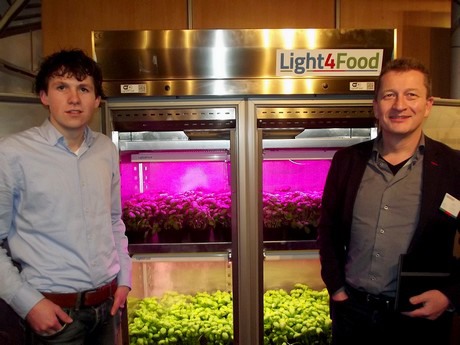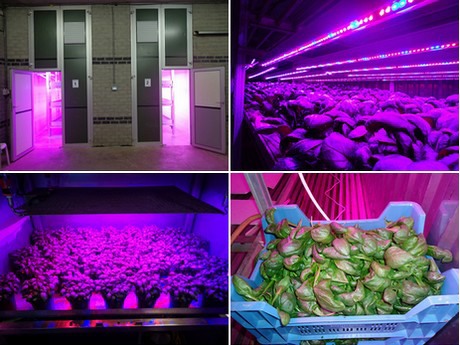
Niels Jacobs anf René van Haeff of Light4Food
Multilayered cultivation
The use of LED lighting in cultivation is nothing new, but growing on nets in multilayer cultivation is, at least according to René van Haeff of Light4Food, unique. "Growing without daylight in closed cultivation systems was originally intended for mushroom cultivation," he says. "Peter Christians first began with growing lettuce and leafy vegetables in this system. For this, we made use of paper pulp. For this cultivation we could not guarantee that the pulp was completely pure. Therefore, we searched for alternative substrates and hit on nets. The plant root grows through the net to a layer of water."
Clean crop
This way of growing has, according to Light4Food, many advantages. “Growing on nets keeps the crops clean. This means you don’t have to wash them, and because of that, they don’t bruise.”

Light4Food built a trial installation featuring several layers of net cultivation.
Food supply
The system can play a big role in our future food supply. "The future is not so far off. In some regions, this way of growing is already highly relevant today," says Light4Food. "It’s ideal because it uses very few resources. In fact, the only thing you need to produce is seed. Also, you have very little waste."
More information:
Light4Food B.V.
Energiestraat 15
5961 PT Horst
Nederland
Telefoon: +31 77 207 0008
E-mail: info@light4food.com
www.light4food.com

